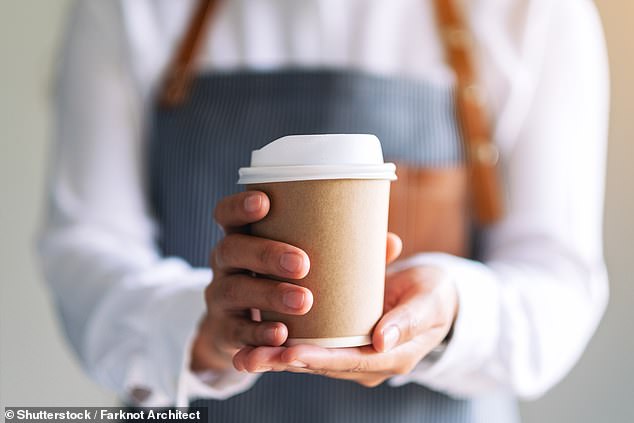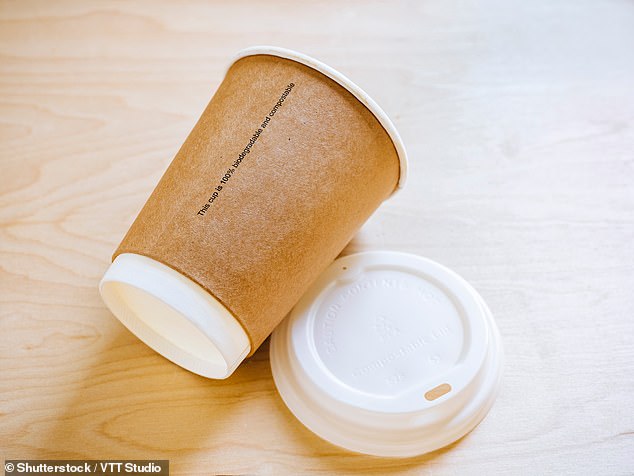<!–
<!–
<!– <!–
<!–
<!–
<!–
hHundreds of millions of coffee cups are expected to be saved from landfills when the country’s first ban on plastic-coated takeaway cups comes into effect.
Western Australia on Friday became the first state to introduce a ban on single-use, non-compostable coffee cups, with businesses that fail to comply facing heavy fines.
Cafes can instead use compostable paper cups, which are excluded from the ban, or encourage customers to bring their own cups, WA Environment Minister Reece Whitby said.
“This is an excellent measure for the environment because we know that plastic persists in the environment for decades and decades and decades,” he told reporters on Saturday.

WA has introduced Australia’s first ban on single-use, non-compostable plastic coffee cups
The change is part of a broader push by the Cook government to reduce the prevalence of single-use plastics in the economy.
Also banned on Friday were disposable plastic food trays without lids, such as sushi trays and bento boxes.
Bans on several items, including microbeads and cotton swabs, came into effect in 2023, while the sale of plastic produce bags and lidded takeaway containers will be banned from September.
Whitby said more than one billion single-use plastic items, including more than 154 million coffee cups, will be saved from landfills annually.
Friday’s change came after a 12-month consultation process with businesses, which the government says widely support the changes and already use environmentally friendly alternatives to single-use plastics.
He hopes to keep the community on his side by relaxing the bans with a “common sense” approach to enforcement.
“It’s all about education,” Mr Whitby said.
“We are allowing cafes that may have old stock of compostable coffee cups to exchange them.”
But the authorities also have a big stick to deter those who continually disobey the restrictions, with fines of up to $5,000 for individuals or $25,000 for companies.


The WA government says the ban will mean 154 million cups of coffee will be saved from landfill annually.
The latest bans come just in time for Clean Up Australia Day on Sunday, which has spurred dozens of volunteers to remove plastic coffee cups from parks and waterways since 1990.
During fiscal year 2023, the group’s volunteers cleaned nearly 13,000 to-go coffee cups, placing them among the top 10 most common waste found.
Increased social activity following COVID-19 has likely contributed to the increase in coffee cup waste, Clean Up Australia Day said in its annual Litter Report.
While South Australia has committed to removing the cups from sale in September, progress is slower in more populous states, with New South Wales and Victoria among jurisdictions yet to commit to banning them.
“Western Australia is leading the way,” boasted Mr Whitby.
“We are the leading state in the transition to single-use plastics.”
